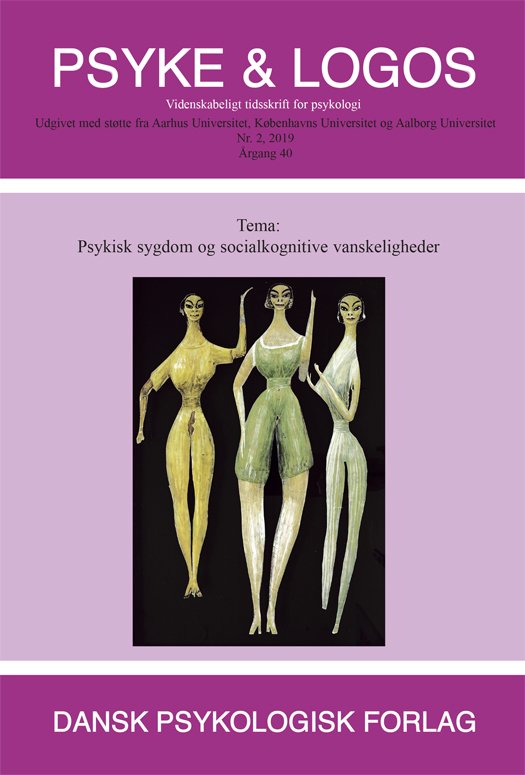Social kognition, psykoterapi og psykoselidelser
Et systematisk review af social kognitions påvirkning på udbyttet af psykoterapi til skizofreni og andre psykoselidelser
DOI:
https://doi.org/10.7146/pl.v40i2.117809Nøgleord:
Social kognition, Psykoterapi, Psykotiske lidelserResumé
I artiklen præsenteres et systematisk review af forskningslitteratur omhandlende social kognition og psykoterapi til patienter med psykotiske lidelser. Følgende forhold søges belyst: 1) hvilken betydning har det socialkognitive funktionsniveau for patienter med psykoselidelser for udfaldet af psykoterapeutisk behandling? 2) hvilken indvirkning har psykoterapi leveret til patienter med psykoselidelser på det socialkognitive funktionsniveau? og 3) i hvilken grad er symptomreduktion i forhold til psykotiske symptomer ved samtalebehandling medieret af bedring af det socialkognitive funktionsniveau? Den inkluderede litteratur består af syv studier. Reviewet indikerer, at reduceret socialkognitivt funktionsniveau hos patienter med psykoselidelse i lille grad forudsiger og begrænser udbyttet af psykoterapi, at psykoterapi ikke har indvirkning på det socialkognitive funktionsniveau, og at reduktioner i det psykosespecifikke symptombillede ikke er medieret af bedringer i det socialkognitive funktionsniveau hos patienterne, blandt andet grundet en manglende bedring på det socialkognitive funktionsniveau. Forskningsfeltet omhandlende patienternes socialkognitive funktionsniveau og samspillet med psykoterapi til psykoselidelser er meget begrænset, og mere forskning er krævet.
Downloads
Publiceret
Citation/Eksport
Nummer
Sektion
Licens
Ophavsret er tidsskriftets og forfatternes. Det er gældende praksis, at artikler publiceret i Psyke & Logos, som efterfølgende oversættes til andet sprog, af forfatteren frit kan publiceres i internationale tidsskrifter, dog således at det ved reference fremgår, at den oversatte artikel har et forlæg i en dansksproget version i Psyke & Logos. Artikler kan frit deles og linkes til på forsknings- og undervisningsnetværk (så som Blackboard). Link foretrækkes, fordi det giver oplysning om brug af tidsskriftets artikler.




